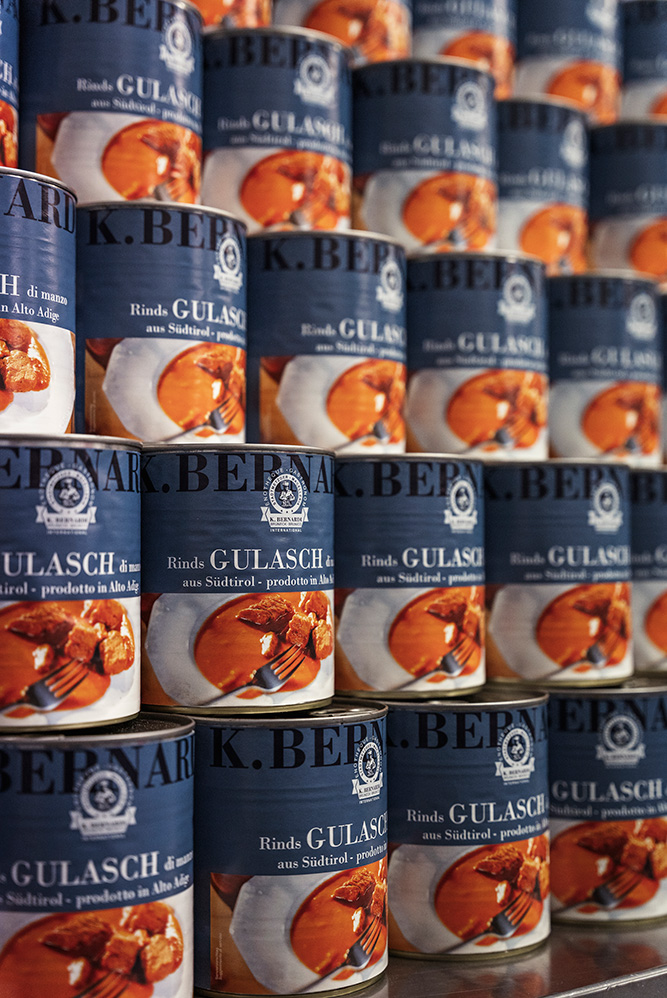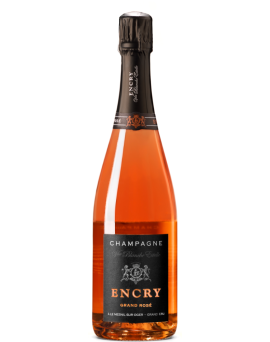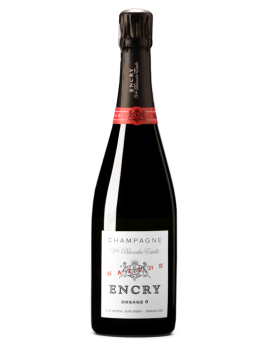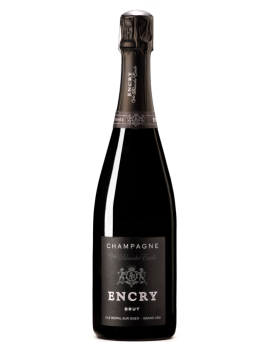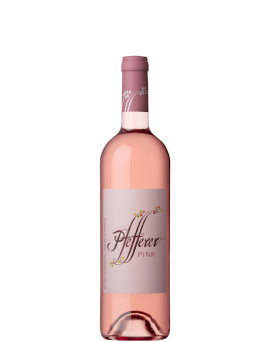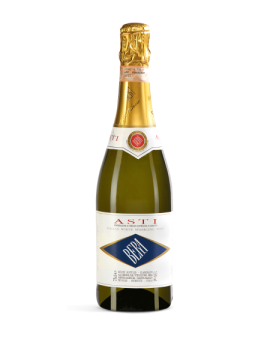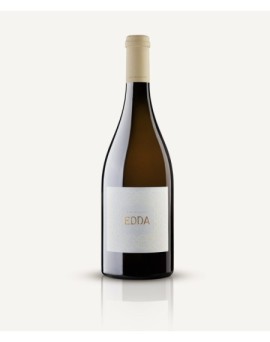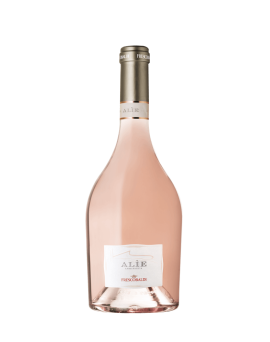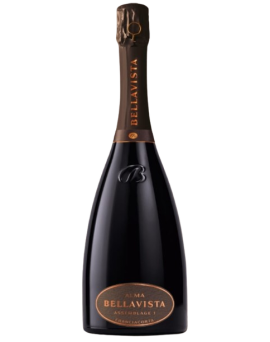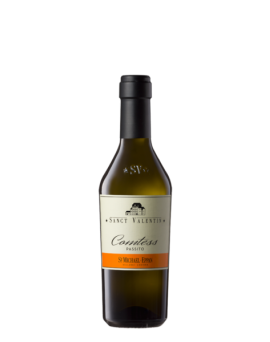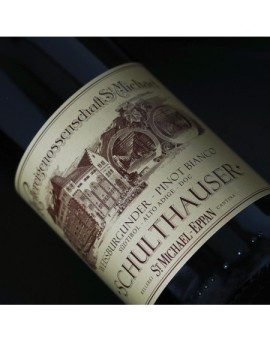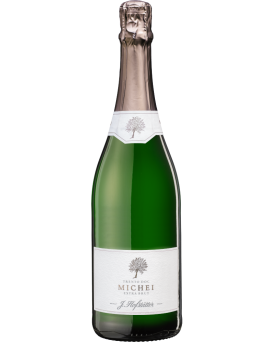Basket
0
Active filters
Moscato Rosa DOC 2023 375ml...
<br />South Tyrol Moscato Rosa DOC<br /><br />A rare pleasure in a small edition<br /><br />Castel Sallegg and Moscato Rosa. These two terms have long belonged together in South Tyrol. Not without reason, it was the Princes of Campofranco, ancestors of the<br />current owner Count Georg von Kuenburg, who in 1892 brought this noble grape variety with them when they moved from Sicily to Sallegg Castle in Caldaro and planted it<br />in the warmest soil on Lake Caldaro, where it thrived magnificently. Today, the rose muscatel is one of the rarest varieties in the world. The Moscato Rosa of Castel Sallegg<br />grows at the Seehof in St. Josef am See at 230 m above sea level on the traditional pergola.<br /><br />The production of this wine is very limited: Depending on the weather, Moscato Rosa may not be bottled at all in certain years. Otherwise, up to 1,000 bottles are bottled per<br />vintage.<br /><br />Tasting Notes:<br />A dessert wine whose colour is characterised by a dense raspberry red.<br />On the nose, rich aromas of roses, fine fruit components distantly reminiscent of lychee and ripe, very complex raspberry flavours, supported by an elegant spiciness in<br />the background.<br />Very opulent, repeating the aromas of the fragrance, this powerful wine type presents itself on the palate.<br />Serving temperature: 10-14°C<br />Shelf life: Up to 30 years. Moscato Rosa is Castel Sallegg's most famous wine and, as a variety, is one of the rarest in the world.<br />Food recommendation: Ideal with mature, spicy cheeses, foie gras, desserts with berry fruits (but with sugar restrained). Also perfect as a stand-alone wine in the sense of<br />a meditation wine.<br />Grape variety: 100% Moscato Rosa - Selection Kuenburg: Autochthonous variety.<br />Site: Kaltern - Seehof: 230 m above sea level. Gravel and reddish, ground Grödner sandstone. Warm, air-permeable soils with a special microclimate in the immediate<br />vicinity of Lake Kaltern.<br />Growing system: Traditional pergola<br />Yield per vine: 0.5 kg - 8 hl/ha due to natural trickling.<br />Vinification: The grapes are harvested very late with a minimum gradation of 32°KMW (160 Öchsle). This is followed by a week of maceration in stainless steel tanks.<br />Maturation: 1 year in stainless steel barrels, followed by 12 months in the bottle.<br />Alcohol: 12,5 %<br />Acidity: 7,3 g/l<br />Residual sugar: 161,4 g/l<br />
Price
€47.00
Pfefferer PINK Rosé IGT...
Pfeffer PINK<br />IGT Dolomiti Rosato<br /><br />Joy of life 'Pfefferer' in rosé: Clear fruit, fine, spicy notes, pleasant freshness and a bright, pale pink colour.<br />Description: A fresh wine with an appealing aromatic bouquet and a bright rosé hue. Aromas of red berries such as strawberry and delicate peach and spicy notes<br />followed by a stimulating acidity are typical of this palate-pleasing wine.<br />Ageing potential: 2 years.<br />Recommended food: Ideal aperitif wine! Goes well with spicy antipasti and various fish dishes.<br />Serving temperature:10° C.<br />Grape variety: Selected grape varieties that best reflect our growing region.<br />Vineyards: Vineyards on gravelly-sandy soils.<br />Vinification: After a short maceration period, the red and white grapes are pressed and the must is fermented in stainless steel tanks. This is followed by a further ripening<br />phase on the fine lees.<br /><br />Analytical values:<br />Alcohol: 12.5% vol.<br />Total acidity: 5,8g/l<br />Residual sugar: 2,2 g/l<br />
Price
€13.60
Spumante D'Asti BERA 2024...
The grapes used to produce this finely aromatic Asti spumante come from Moscato bianco vineyards on soil rich in limestone. The continuous 'perlage' and persistent<br />foam are a prelude to the ample and intense perfume reminiscent of orange blossom and sage. The sweet and inviting flavour is tempered by a stimulating acidity. Ideal<br />with dessert, the wine of the party, as an aperitif and for any other occasion to remember.<br /><br />TECHNICAL DESCRIPTION:<br />Vineyard exposure: east-south to south-west, with rows oriented to take full advantage of the sun's action on leaves and bunches.<br />Soil composition: clayey-tufaceous soil rich in limestone, which enhances the finesse and aromaticity of the wines, very important for this grape variety.<br />Vine density: nr. 4000/5000 vines per hectare from 5 to 40 years.<br />Type of training: low plant with simple guyot, tending to bring the leafy part upwards, in order to expose the bunches to the sun's action and encourage photosynthesis on<br />the leaves. A maximum of 8/9 fruit buds are left.<br />Harvest: 1st or 2nd decade of September, picked by hand.<br /><br />ORGANOLEPTIC DATA SHEET:<br />Denomination: Asti DOCG<br />Grape variety: White Muscat<br />Colour: more or less deep straw yellow colour.<br />Perlage: fine and persistent.<br />Bouquet: rich and intense fragrant aroma of Muscat grapes mixed with the scent of yeast and floral notes.<br />Taste: delicately sweet flavour, in harmony with the right acidity, moderate alcohol content and enlivened by the development of the mousse.<br />Serving suggestions: Serve chilled, 6-8°C on dessert, with various pastries, as an aperitif, as a thirst quencher at any time of day, but especially on any festive occasion.<br />
Price
€14.60
Edda Bianco IGP Salento...
WHITE SALENTO IGP<br />Edda<br />Typology: White<br />Grape varieties: Predominantly Chardonnay with autochthonous white grape varieties<br />Denomination: Salento IGP<br />Cultivation: Guyot<br />Planting density: 4,500 vines per hectare<br />Production area: San Marzano (TA), Salento, Apulia. At about 100 m above sea level. The climate is characterized by a good thermal excursion between day and night.<br />Soil: Shallow and medium-fine texture<br />Harvest: August<br />Vinification: The grapes are destemmed and left in cryo-maceration for a few hours. The next step is the soft pressing of the pomace followed by a cold static decantation.<br />Alcoholic fermentation takes place in French oak barriques.<br />Aging: On the lees in French oak barriques for 4 months with weekly bâtonnage<br />Tasting notes: Straw yellow color with golden reflections; a bouquet with persuasive floral and peach scents and then delicate vanilla pervade the nose. The palate is opulent<br />in its elegance, fresh, delicate and mineral.<br />Food pairings: Appetizers, fish dishes and cheeses<br />Serve at: 12-14°C<br />
Price
€19.20
FRANCIACORTA DOCG ALMA...
DENOMINATION Franciacorta DOCG<br />PRINCIPAL VINEYARDS Favento, Brede, Uccellanda, Rocchetta,<br />Porte Alte, Sasso, Valli, Cancello Moretti, Casotte, Ceppate<br />GRAPE VARIETIES 86% Chardonnay, 13% Pinot Noir, 1% Pinot Blanc<br />SELECTIONS From 60 vineyards, 91 selections<br />VINEYARD SYSTEM Guyot, spurred cordon, Sylvoz,<br />Double bow, Simple bow<br />PLANTING DENSITY 5000 vines/ha<br />YIELD Chardonnay 100 q.li/ha, Pinot noir 90 q.li/ha, Pinot<br />white 90 q.li/ha<br />AVERAGE AGE OF VINES 27/28 years<br />HARVEST PERIOD 25 August to 4 September 2021<br />HARVEST Manual in small 13 kg crates<br />AGING ON LEES Average 30 months<br />WINES AGED IN PIÈCE 32<br />PRESSING Must flower, 1st cut, 2nd cut<br />DRYING 2022<br />REMUAGE Manual<br />TYPOLOGY Extra brut<br /><br />SUGARS 3.5 g/l, ALCOHOL 12.5%, TOTAL ACIDITY 6.3 g/l,<br />PH 3.13, TOTAL SULPHUR 76 mg/l<br />
Price
€37.80
Comtess 2022 St. Valentin...
Passito Comtess<br />Sanct Valentin<br />Passito is the Italian term for wines that are made from air- and sun-dried, almost rosined grapes. This usually takes place in our vineyard, i.e. the grapes remain on the<br />vine until the end of the year. The elegant Passito Comtess delights with intense fruit, a creamy-soft body, with a long finish and flatters the palate with racy-fresh acidity.<br />The youthful, fresh aromas become increasingly complex with proper bottle ageing and gradually fade into subtle honey notes.<br /><br />Grape variety: Gewürztraminer<br />Vine age: 20 years<br />Growing region:<br />Site: vineyard at the foot of Valentin Castle (600m) and in Pinzon/.<br />Montan (330m)<br />Exposure: Southeast / Southwest<br />Soils: Calcareous gravel soils<br />Method of cultivation: Guyot<br />Harvest: Mid-December; harvest and grape selection by hand.<br />Vinification: The dried grapes are pressed and fermented and matured partly in steel tanks and partly in small wood.<br />Yield: 20 hl/ha<br />Analytical data:<br />Alcohol content: 11,5%.<br />Residual sugar: 197 gr/lt<br />Acidity: 6,25 gr/lt<br />Drinking temperature: 8-10° C<br /><br />Recommended consumption:<br />This fruity dessert wine goes perfectly with blue cheese,<br />but also with fruity desserts like apple strudel, apple pie with vanilla<br />vanilla ice cream or 'Peach Melba'.<br />Cellaring/Potential:<br />10 years and more<br />
Price
€42.00
Pino Bianco Schulthauser...
South Tyrolean Pinot Blanc<br />Schulthauser<br /><br />Pinot Blanc, South Tyrol's most important grape variety, has awoken from its slumber and has become the region's flagship wine. Schulthauser is the classic among South<br />Tyrolean Pinot Blancs; it was first vinified and bottled in 1982. It is not a loud drop, but a consummate, finely fruity-fresh Pinot Blanc, which at the same time seduces with<br />creamy softness and racy acidity to enjoy.<br /><br />Grape variety: Pinot Blanc<br />Vine age: 10 to 40 years<br />Growing region: Site: Vineyards in 'Schulthaus' above Schloss Moos in Eppan/<br />Berg (540-620m)<br />Exposure: Southeast<br />Soils: Calcareous gravel soils with loam<br />Method of cultivation: Guyot<br />Harvest: Mid to late September, harvest and grape selection by hand.<br />Vinification: The majority (85%) is fermented in steel tanks, the rest in wooden barrels followed by<br />followed by biological acid reduction. In February the two<br />wines are blended.<br />Yield: 60 hl/ha<br /><br />Analytical data:<br />Alcohol content: 14.0<br />Acidity: 5,55 gr/lt<br />Drinking temperature: 8-10°.<br /><br />Recommendation: Exclusive aperitif and summer wine, but also a versatile food companion: it tastes good with seafood and fish, as well as with delicate dishes of wild fowl.<br />It is particularly recommended with South Tyrolean Schlutzkrapfen.<br /><br />Ageing/potential: 4 to 5 years<br /><br />Awards:<br />2019: 93 points Luca Maroni, 92 points James Suckling, 91 points Robert<br />Parker, 91 points Falstaff, 90 points I Vini di Veronelli, 90 points Intravino.<br />2018: 94 points Wine Enthusiast, 91 points James Suckling, 91 points<br />Decanter<br />2015: 89 points Wine Spectator<br />2012: 90 points Wine Spectator; 90 points Wine Enthusiast<br />
Price
€9.80

